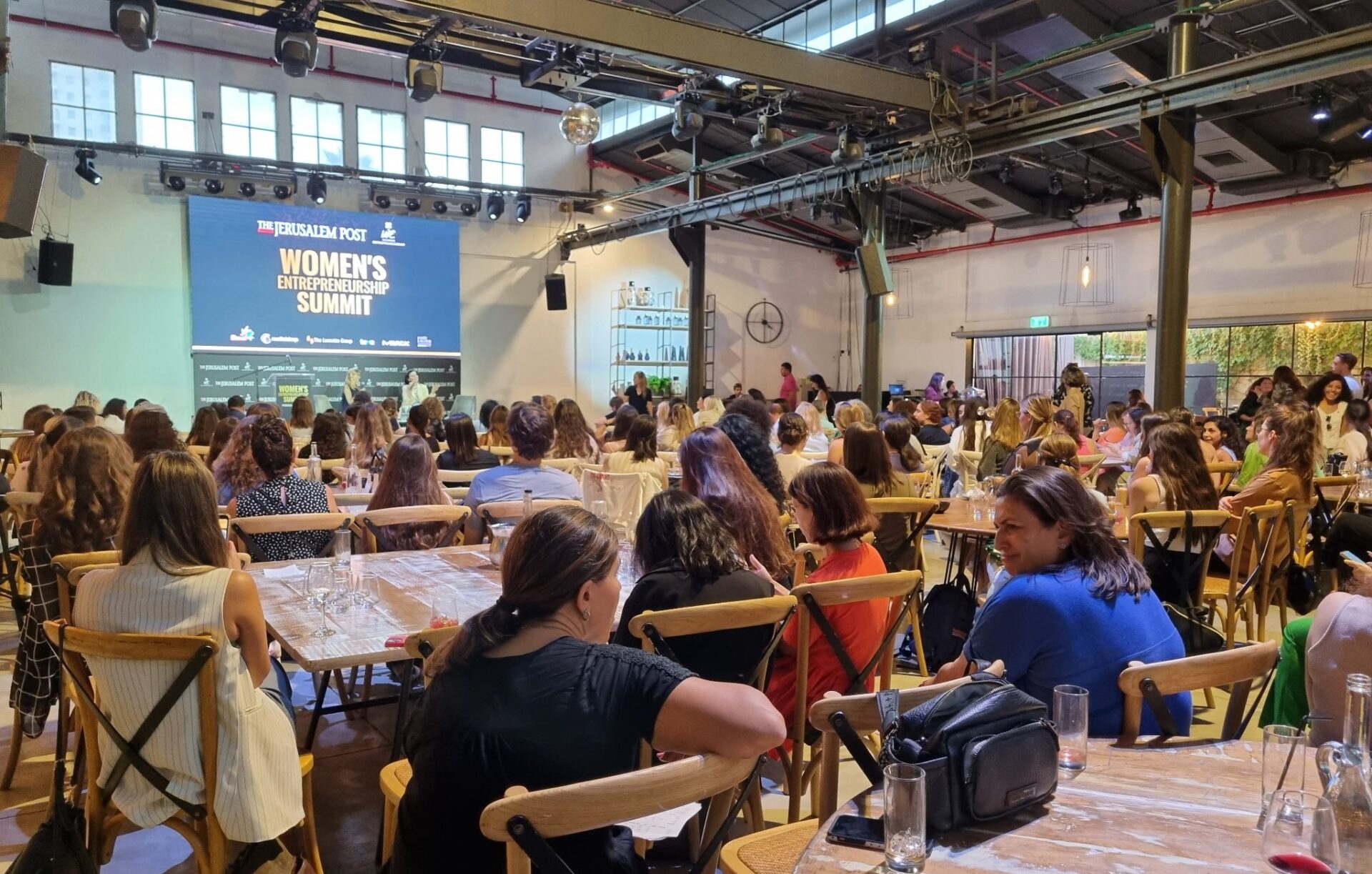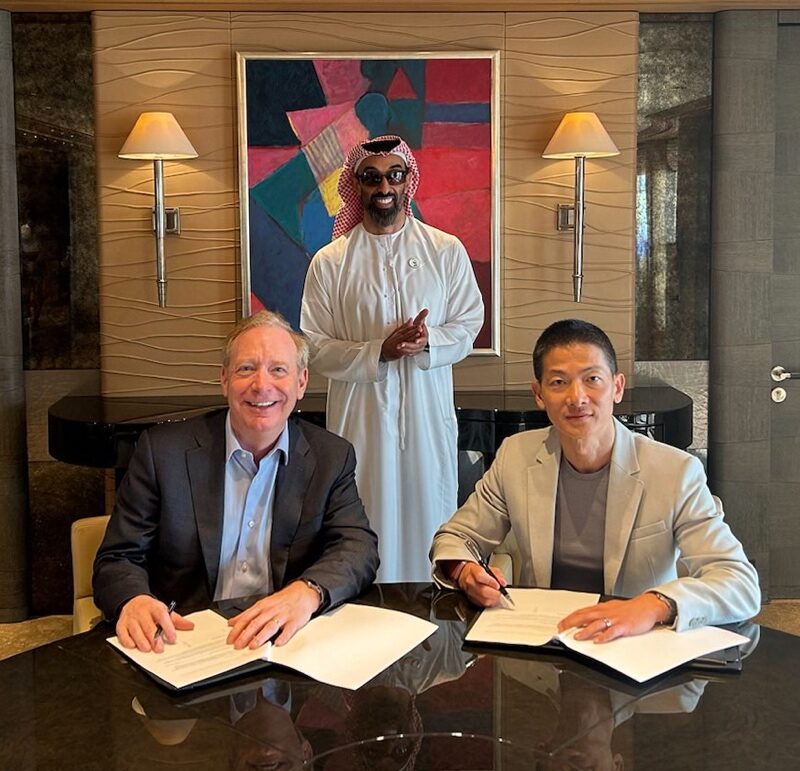
Marc Israel Sallem
Israeli women push for greater influence in tech world
Corporate leaders at Tel Aviv conference say government and industry need to work harder to put women in top positions
Yifat Oron, who runs the Israel office of Blackstone Inc., the world’s second-largest private equity firm, said she’s appalled at the industry’s meager support for women. Citing the $330 billion invested by venture capital firms in technology companies last year, Oron asked at a conference last week what percentage of that sum was invested in businesses led by women.
“It’s really bad – 2%,” she told the audience at the inaugural Women’s Entrepreneurship Summit in Tel Aviv. “A slightly less bad number is the amount of money invested in companies that have women in the founding team – that’s 16%. It’s still really bad. Why is it bad? Because we don’t have enough women investors. So it’s a vicious cycle. We have to solve it.”
With Oron, a senior managing director at Blackstone, painting the grim investment landscape, others at the July 26 conference focused on how to improve the situation through networking and pushing companies to recognize the need for change. Ofra Strauss, chairperson of the Israeli foodmaker Strauss Group that was founded by her grandparents, said the company has evolved since earlier days when she was often the only woman in key business meetings.
“It only took me two minutes to understand,” Strauss said. “If the room was empty of women and I didn’t see them around me, something was fundamentally wrong.”
Other speakers at the conference included Galia Inbar, executive vice president of Teva Pharmaceutical Industries; Regine Shevach, head of the Merck Israel Technologies Center; Shirel Oded, marketing director of Estee Lauder in Israel; Dorit Dor, chief product officer at Check Point Software Technologies; and Inbar Badian, head of strategy and innovation at Microsoft Israel. The sole male voice on a panel was Yossi Vardi, a serial entrepreneur recognized as one of the builders of Israel’s technology ecosystem.
The conference, which was sponsored by the Jerusalem Post and Israel’s WE (Women’s Empowerment) group, drew about 300 women to the city’s trendy East TLV club, where they noshed on steak tartare, quail eggs and deconstructed sushi.
Speakers also focused on other realms where women are not equal partners. Ruth Wasserman Lande, a member of Israel’s parliament from the Blue & White party and a former diplomat at its embassy in Egypt, said working in the Arab country was not easy.
“I spent three years as a woman in Cairo and being an Israeli Jewish woman was challenging,” she told The Circuit in a phone interview. “We still have a way to go to have truly equal opportunities. We have more to deal with especially after we get married and have kids and have more to juggle. It is changing, but slowly.”
Wasserman Lande, who is co-chair of the Abraham Accords Caucus in the Knesset, Israel’s parliament, noted efforts by the United Arab Emirates to promote women. For example, women by law make up half the members of the Federal National Council, an unelected advisory body to the royal court. When it comes to tech, only 5% of all CEO’s in the UAE are women, according to government figures, which is just below the global figure of 6%.
The Israeli politician, who is also a member of the Gulf-Israel Women’s Forum, said that women are often better at connecting with each other than men are.
“Women have a tendency to find common ground,” she said. “I would encourage women to take a more significant role in bridging gaps in high-tech and business innovation. I would go even further and say that it is just as important in regional policy issues.”
While the tech world still conjures images of scruffy young men in hoodies coding at all hours of the night, some women at the conference suggested that companies have great potential to offer a fair level of work-life balance. The COVID-19 pandemic demonstrated the possibilities when companies send employees home to work remotely and later introduced hybrid options
“I think now it is very much up to the women –— they need to really want to get into the high-tech scene,” Rivka Carmi, the former president of Ben-Gurion University of the Negev in the southern Israeli city of Beersheva, told The Circuit in a phone interview. “We are on the way, but it is happening very slowly.”
A trend in Israel that Carmi pointed to as positive is the increased number of young women joining the army’s intelligence and computer units, a stepping-stone to future careers in tech. Obstacles, however, come both from the corporate world and from women themselves, she said.
“We are in a much better position than we used to be as high-tech companies are aware of the need for women in leadership positions,” Carmi said. “They are aware of the needs of women to balance family life and career and are catering to the needs of women. But it is mostly about the women themselves and whether they are willing to take on this kind of career.”
According to the Israel Innovation Authority, a government agency, women today make up 22.6% of Israeli tech executives and 9.4% of all chief executive officers who founded startups in 2022. That contrasts with the fact that women make up 51% of the population.
Some of Israel’s biggest tech companies, such as Check Point, are actively recruiting young women starting in high school to enter tech fields. There are also mentoring programs to encourage more young women to join the industry. Recent figures show that women make up half of those who study math at the highest level in Israeli high schools, and more than a third of those who do the same in computer science.
Oron told the audience that Blackstone has worked hard to promote women inside the company while investing more than $10 billion in women-led companies.
“Nearly half of our incoming analyst class this year are women; hopefully most of them are going to stay throughout their careers with us,” she said. “We’re doing a lot of work, and everybody here who employs people needs to take charge and make sure they spend a lot of energy on hiring more women.”


